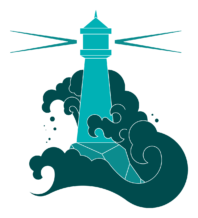How CBT and the Skilled Helper Model can influence our Well Being
In 2020 I joined Achology, the Academy of Modern Applied Psychology. I went through their training program and am engaging in their CPD journey. I had two big surprises in my life since then.
One is the wonderful side-effect of how much more open and deeper my conversations have become with friends, especially the ones I had not been that close to.
This leads me to the second surprise, which is more of a shock. I had no idea how many of them are on Anti-Depressants. One friend had some problems at work and her doctor’s reply was: “It might be time for some Happy Pills.”
There is a lot of research and papers written on the massive increase Worldwide in the consumption of Anti-depressants.
I looked at the figures from Ireland, where I live. From 2012 to 2017 the rate jumped by 18%. Not only are more people taking the drugs, but also the dosage per person has risen by 28%. A staggering 209 Irish citizens out of 1000 are taking anti-depressants for different reasons. The drugs are also increasingly prescribed for anxiety and other mental health issues.
Reading the articles on the speculation of why this is the case, I very quickly got tired of the blame game. The doctors are at fault, they are overprescribing the pills, the pharma industry is pushing them on people for profit, smartphones make us stressed, the economy and housing market makes us worry.
Maybe it is time to switch focus and look closer at home, ourselves. I admit this is much more uncomfortable.
My friend got her Happy Pills from the Pharmacy, but something did not feel right about this solution. The problem was with the circumstances at work. No pill in the world could fix this. She said to me: “If I just want to feel better, I could simply take up recreational drugs or alcohol, what would be the difference?”
The research on the increase of Anti-depressants in Ireland established that the cases of diagnosed “severe clinical depression” had not increased over decades. The usage went up for “mild” depression, anxiety, and stress.
This fact leads to two controversial subjects. Our relationship with our emotions and feelings and our willingness to tolerate discomfort.
Imagine I would say to you: “I am in a fantastic place in my life. All is going great. I feel happy and excited. Actually, I feel so happy, I went to the doctor and got some Sad Pills as I do not want to bear that happy feeling anymore.”
I assume you would think I am mad. Of course, you would be correct. But this is exactly what we are doing with feelings we label “bad or negative.”
CBT (Cognitive Behavioural Therapy) has a different approach. Feelings are just an indication of what is going on in our lives. If we feel stressed, sad, anxious, or overwhelmed, we need to ask ourselves what is causing these feelings and to accept them as a natural human reaction the same way as we accept the feelings we like to have. But instead, we treat them like an enemy.
There are always better solutions rather than just feeling better short term with a quick fix. That means of course that we need to develop a tolerance for all emotions and to take action for a long-term change.
Anti-depressants are not Happy Pills. They just numb us as a person. That means we also cannot fill joy anymore as intensely as we would like. Instead of focusing on the problem and just wanting to numb our feelings, we can focus on the solution. This is where the Skilled Helper Model gives us the necessary framework.
A lot of our problems in life need hard work on ourselves and some time. In my friends case her solution for her toxic work atmosphere was engaging in an open conversation with her managers.
Another reason why we must be able to tolerate feelings we do not like is that very often the cause of our feelings is outside of our control. If you felt depressed because of the lockdown during the Covid-19 pandemic, the one solution was to simply sit it out until the end. That does not mean we are helpless during any event. There are always solutions within our control to make the situation bearable.
We are also never at the mercy of our feelings and emotions. Sometimes it is just a long and painful journey to the other end of the tunnel. If we find ourselves in there, we might need some helping hand to guide us through it. This is precisely why treating your “negative” emotions as a friend and not a foe is so important. All emotions come and go. The question is: ”What are you focusing on?” Fighting to not feel a feeling? Or to find a solution for the circumstance which causes the emotion?
At those moments I look for another Achologist to talk to, rather than a pill. We can look for a skilled helper first. The decision is entirely yours.
@Gabriele Tzeschlock June 2024
How CBT and the Skilled Helper Model can influence our Well Being Read More »
